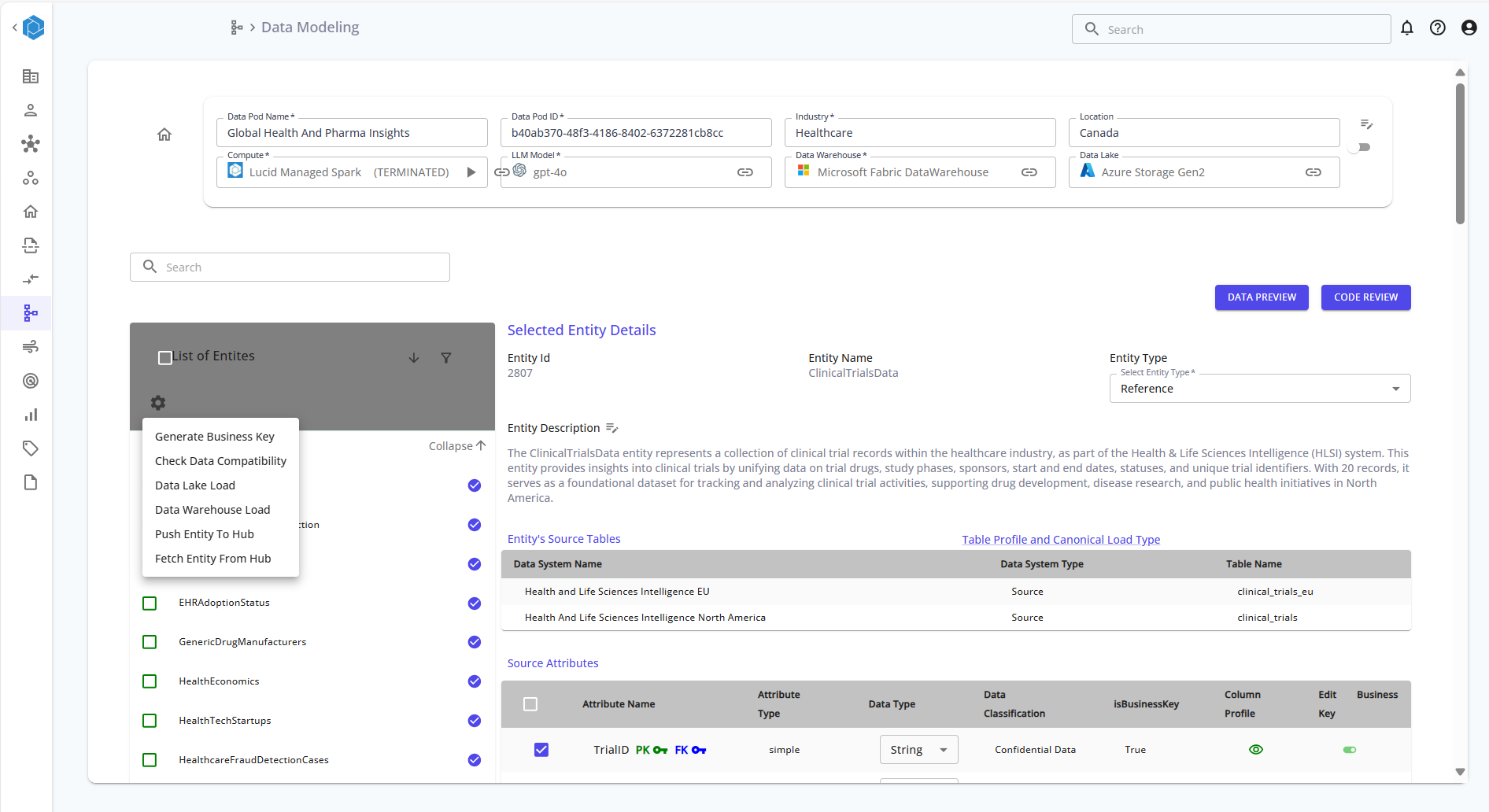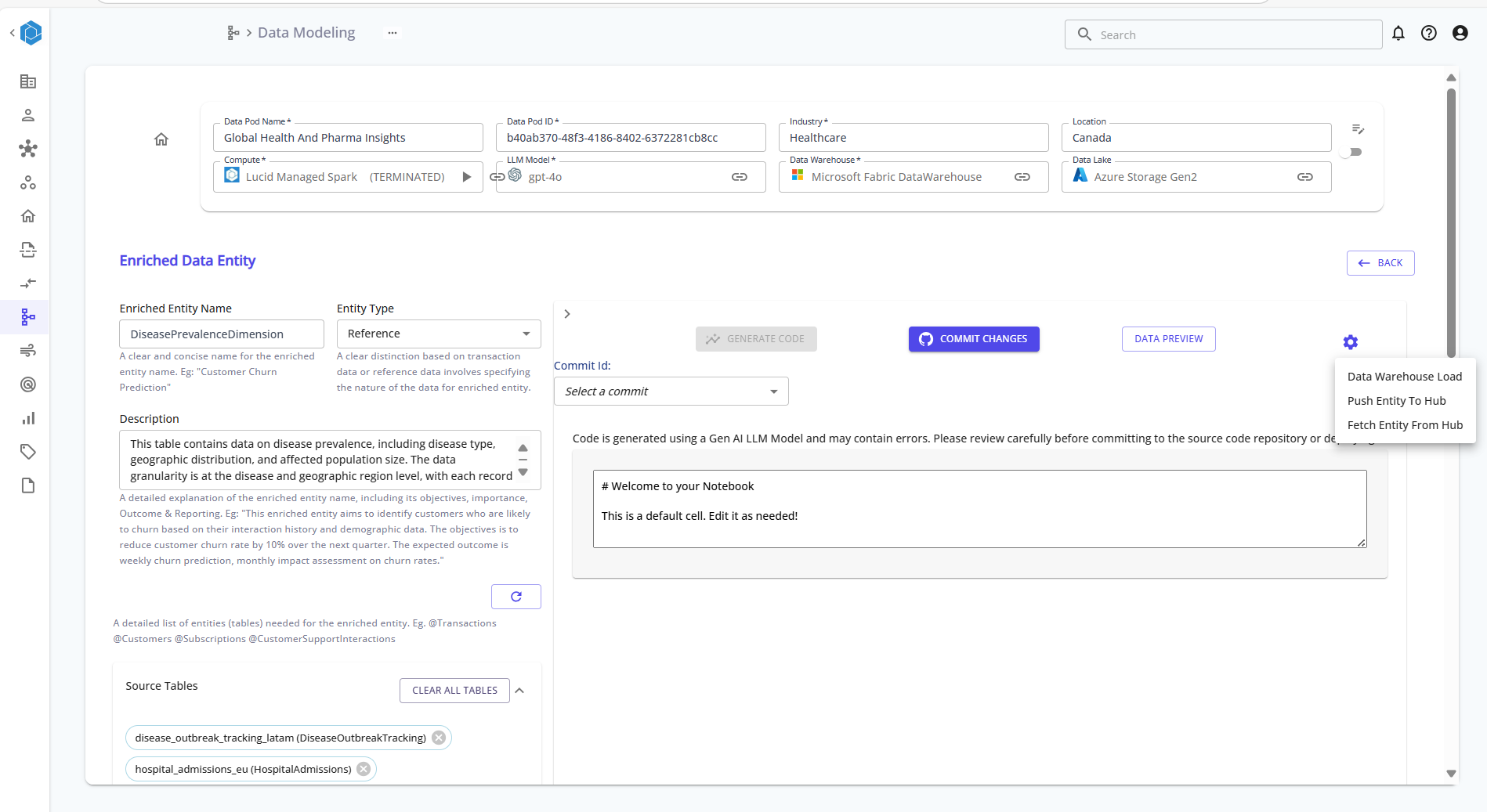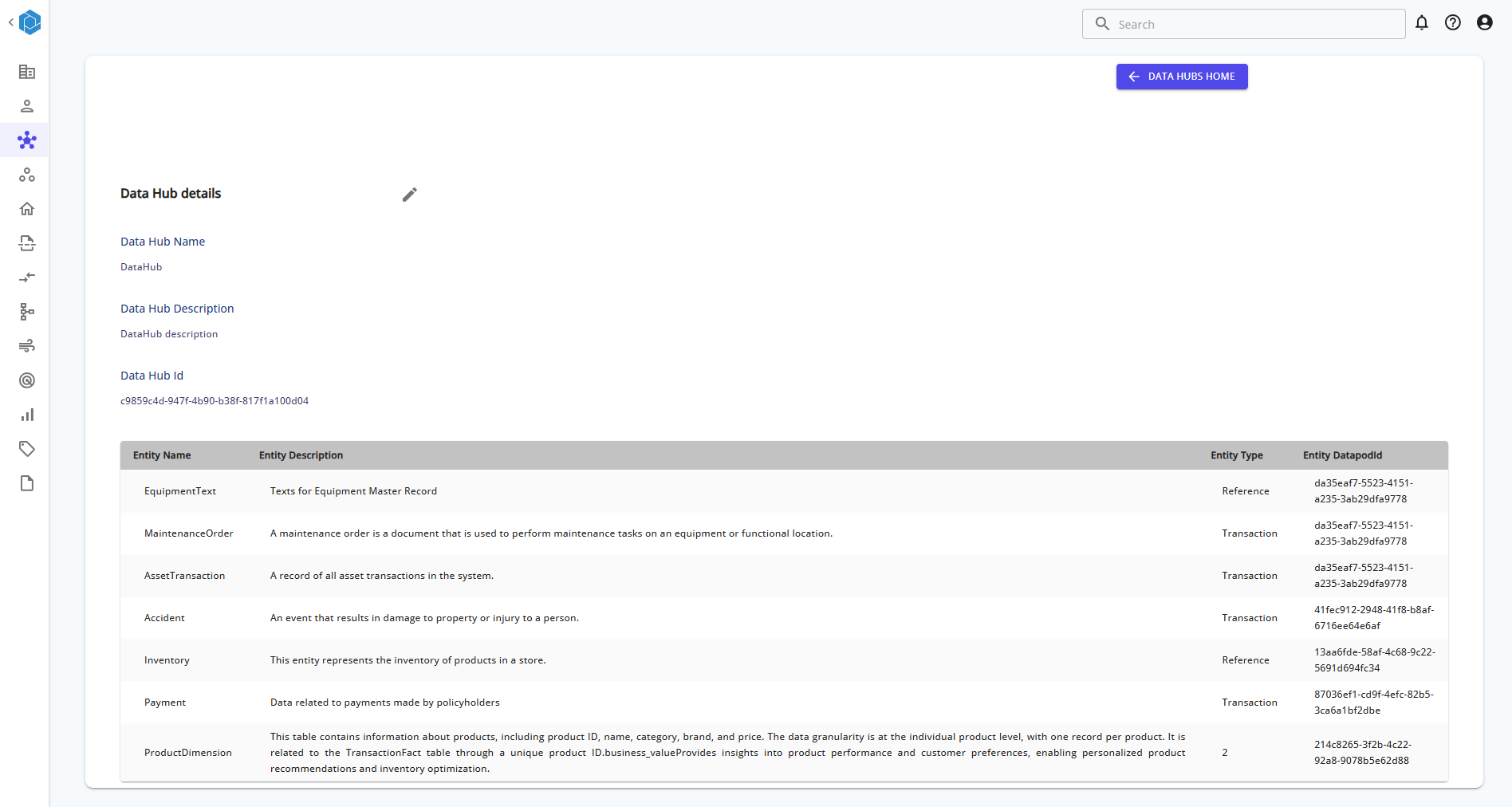Module 11: Hub Entities
Hub Entities
A Data Hub enables sharing of entities—both canonical and enriched—across multiple data pods. This facilitates centralized data access and reuse across projects or teams.
Canonical entities and enriched entities can both be pushed to and fetched from the Data Hub using their respective entity management interfaces.
Step 1: Navigate to Canonical Entities and Push to Hub
From the Data Modeling section, select a canonical entity. You will see detailed metadata including entity ID, name, source tables, and attributes.
To share this entity with other data pods:
- Click on the gear icon beside List of Entities
- Select Push Entity To Hub
You can also use the options Generate Business Key, Check Data Compatibility, and trigger Data Lake or Warehouse Load.
Reference:

Step 2: Push Enriched Entities to the Hub
From the Enriched Data Entity interface, once your enriched entity is defined and committed:
- Click on the settings gear in the top right
- Choose Push Entity To Hub
You can also use the same menu to Fetch Entity From Hub if you want to reuse an enriched entity shared from another pod.
Reference:

Step 3: View Entities in the Data Hub
To manage and view all shared entities:
- Navigate to the Data Hub module from the sidebar
- You’ll see a list of all entities (canonical and enriched) shared to the hub, along with:
- Entity name
- Description
- Type (Transaction or Reference)
- Data pod ID where it originated
These hub-shared entities can be fetched and reused across other data pods.
Reference:

Summary of Actions
| Action | Performed From | Location |
|---|---|---|
| Push Canonical Entity | Canonical entity detail view | Data Modeling |
| Push Enriched Entity | Enriched data entity view | Data Modeling |
| Fetch from Hub | Canonical or Enriched entity view | Data Modeling |
| View Hub Entities | Data Hub module | Left Navigation (Hub icon) |
By using the Data Hub, you can effectively decouple data ownership from data usage and enable seamless interoperability across different use cases and domains.